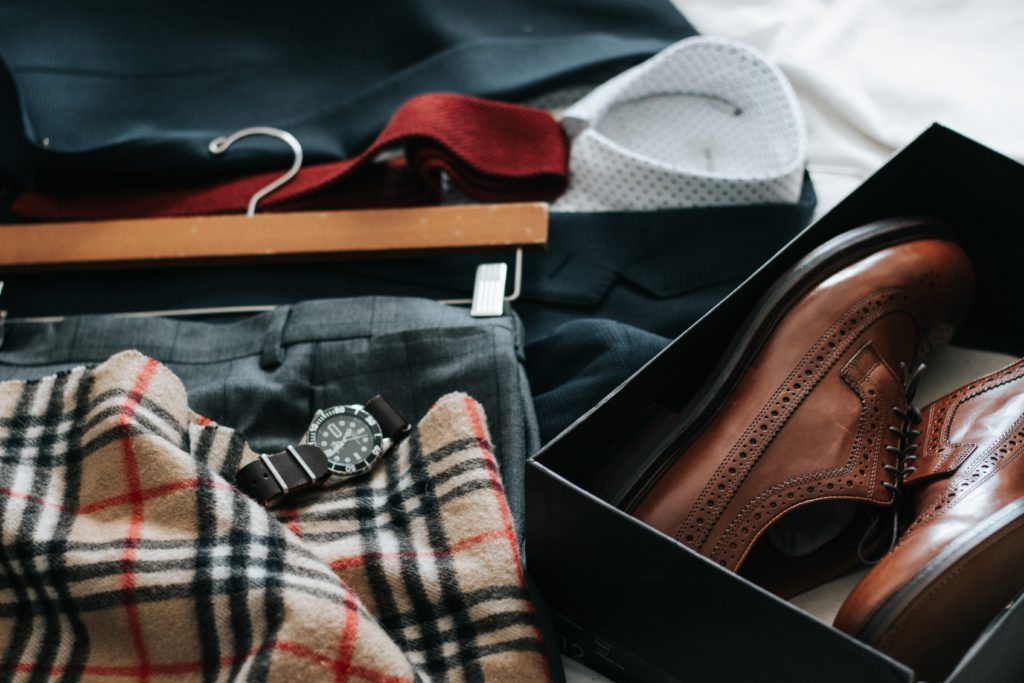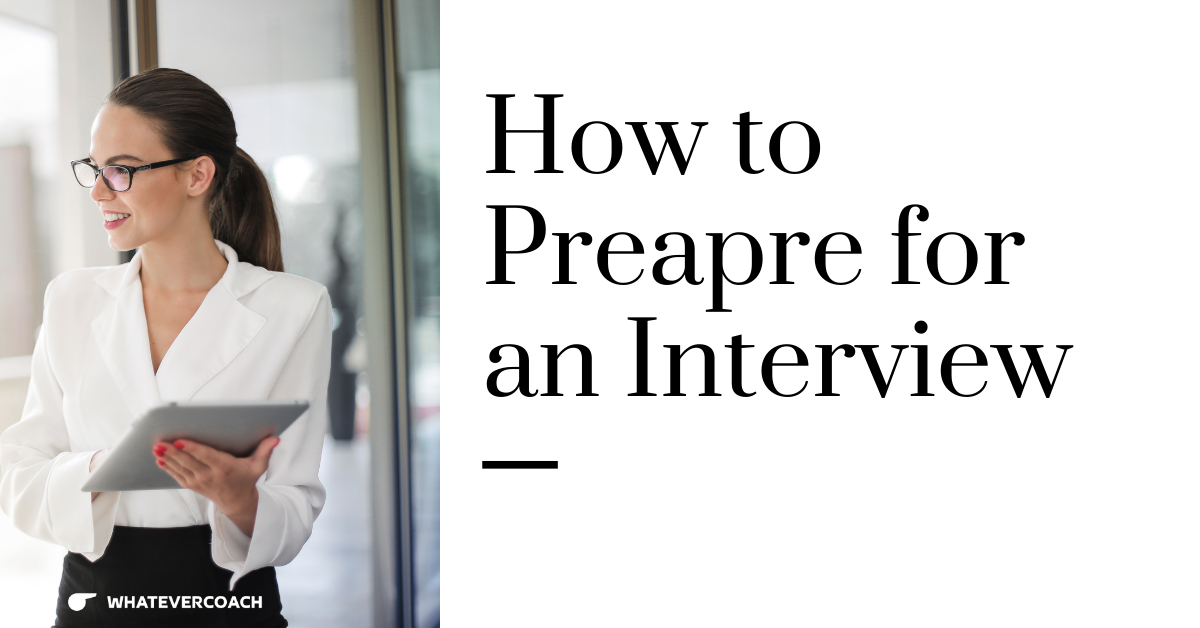The Guide to Having a Great Job Interview
As your job search progresses, you’ll eventually enter the interview stage, and hopefully with multiple employers.
An interview is the beginning of a new relationship with a potential employer and although it may feel like you are being viewed under microscope, the interviewer is also looking to make a good impression. That’s why it’s important to view your interview as a conversation where both parties are seeking to learn more about the other.
Unlike designing a resume or cover letter, interviewing is more of an art than a science. While certain aspects of the interview can be learned, the unique dynamics of an interview require candidates to be responsive and showcase their ability to read nonverbal cues.
Still, we know that job interviews are nerve wracking. That’s why we’ve built this in-depth guide to help you prepare for your interview.
Preparation
One of the biggest mistakes you can make regarding interviews is to show up empty-handed and unprepared.
There are plenty of people who will tell you that an interview is all about having a good personality and making an impression. We aren’t saying it isn’t important to make a good impression on an interviewer, but there is a lot that goes into the preparation for making that impression and successfully completing an interview.
Research
As with most things in the career finding world, you will need to begin with some research. This will help create a basin of knowledge which can influence your decisions when it comes to wardrobe, answers to interview questions, and so much more.
To begin, gather background information on the industry, company, and interviewer. This will allow you to have a more meaningful conversation regarding topics other candidates won’t be able to discuss.
Make sure to look up the address and consider making a drive out a day or so before you interview to make sure you don’t get lost or run into construction on the big day.
The research phase is also a great way to get vital information on the environment and dress code, which will help you in the next step.
What to Wear

Deciding what to wear to your interview is heavily dependent on the workplace.
Are you applying for a job at a law firm? You should opt for a professional look. Are you applying to something a little less formal? Business casual is the way to go.
If your basic research hasn’t turned up enough information to help you make a confident decision about the expectations surrounding your attire, don’t be afraid to call the company and ask for human resources. Politely mentioning your upcoming interview and asking about dress codes won’t look bad and will keep you from making a faux pas.
No matter what your research turns up, it is always a safe bet to consider business casual the bare minimum standard for interview dress. Even if you are interviewing at a bare minimum, entry level, unpaid internship – the way you are dressed creates a large percentage of an interviewer’s first impression of you.
Professional Attire Explained
Professional attire consists of well-tailored, matching, formal pieces of clothing. It is the pinnacle of work garb. This is the type of clothing you might picture being worn at a Fortune 500 company.
Some examples of professional attire are:
- Matching suit and tie
- Tailored dress
- Pantsuit
- Skirt suit
For a visual guide to professional attire, check out the guide on MorganHunter.com.
Business Casual Attire Explained
The “casual” in business casual is a bit of a misnomer.
A business casual look is still a nice, put-together outfit that may not actually be the most comfortable things you own. It usually consists of collared shirts and ties, pressed slacks, blouses, and skirts that hit below the knee.
Though we would all prefer to wear sneakers or flip flops when we think “casual,” you are going to want to pick a nice closed toe heel or patent loafer.
What to Bring
Now that you know how to dress, let’s gather documents and supplies. Here are the items you should always bring with you to a job interview.
Driver’s License or ID
You really shouldn’t go anywhere without some form of valid ID, but you would be remiss to not bring this to your interview.
Some companies won’t even let you sign in for your interview without showing proper ID. Even if you do make it past the front desk without identification, an interviewer may want to offer you a job on the spot, but without an ID they can’t begin any legal paperwork to get your start date established.
Business Cards
If you have business cards, you should always bring them to your interviews. This isn’t an item you want to go tossing about and forcing into the palms of everyone you see. However, if an employer asks for one and you can provide it, you will leave a lasting, positive impression.
Pen and Notebook
Remember, interviews aren’t just about evaluating you – you should also be evaluating the company. Asking questions and taking notes is a great way to show you are invested and knowledgeable of your worth.
Resume Copies
This might be one of the most important items on this list. The interviewer may have seen your resume and cover letter when they first evaluated your application, but it is unrealistic to expect them to remember all your information during the interview.
Presenting copies of your resume (bring 3-5) to all the interviewers in the room helps to ensure they can actively inquire about your unique skills and experiences.
At the Interview
With all the prep work out of the way, you are ready for your interview. Let’s take a look at some basic etiquette along with what you can expect from the interviewer.
Show Up on Time
There you are. You’ve done the research, dressed your best, gathered up your documents and licenses, then you walk in 10 minutes late and aren’t allowed to interview.

Being punctual is a great attribute in general, but it is especially vital for interviews. Being late is the worst impression you could make at an interview – other than starting a fight with the interviewer we suppose – and should be avoided at all costs.
If something unavoidable has happened like an illness or accident, it is far better to call, explain yourself, and ask to reschedule. Employers tend to understand that life happens but showing up late or not showing up at all is considered unprofessional and rude.
Answering Those Awkward Interview Questions
Being asked personal, loaded questions at a job interview isn’t just a TV trope. No, it is a fact of job searching.
Questions like, “How would you describe yourself?”, are meant to feel ridiculous and uncomfortable. Interviewers want to see that you can think on your feet and deliver an answer that is relevant and well-crafted.
If you need a second to think of an answer, just say so! Saying, “That’s a good question, let me think about that,” is far better than “umming” and “ahing” while trying to put together an answer.
For practice, take a look at this comprehensive list of interview questions and tips for answering:
https://www.indeed.com/career-advice/interviewing/top-interview-questions-and-answers
Embrace and Spin Your Weaknesses
It is the dreaded question – “What is your greatest weakness?”
Though it might feel like telling an interviewer your weaknesses is counter intuitive, it is actually a great opportunity to make a good impressing. Interviewers are more interested in seeing if you are able to self-evaluate and learn from your experiences.
This is why it is important to be realistic about your weakness. Don’t be the person who says their biggest weakness is working too hard. It might be true, but humble bragging isn’t a good look, and that is exactly how an interviewer will see that type of response.
A great answer will focus on something you have learned from and end with a focus on improvement.
EXAMPLE: “During my time as an intern at my previous company I often kept quiet in situations where I thought I had a solution to problems presented by management. I assume that since I was on the bottom of the totem pole that I must be wrong, or incapable of coming up with a good answer. Later, when the problem was solved by someone else, I realized the solution was the same or similar to my original, unspoken idea. Over time I have realize this lack of confidence doesn’t just keep me from moving up, but also hurts the company. Since then, I have been focusing on my self-confidence and realizing that it is better to speak up and be wrong, then to stay quiet and delay resolution.”
After the Interview
With the interview complete you can take a deep, relaxing breath, but your efforts aren’t over yet.
Check on Status
If it has been a little while since your interview and you haven’t heard back, you may want to check up on the status. The best way to handle this is with a professional, inquiry email. Here is a great guide to writing an interview follow-up email.
Accepting Rejection with Grace
Hey, rejection happens.
The reason you apply to more than one job is because you know not every position is going to be the perfect fit for you, and you aren’t going to be the perfect fit for every position.
It can hurt to get turned down for a job, but always remember to take your rejection with a smile and grace.
Letting a potential employer know that you are even keeled and dignified in the face of adversity will make them more likely to remember your name when a position pops up that they think might be a better fit for you.
Essentially, consider failed interviews to just be great networking experiences. Don’t get too down and get yourself psyched up for the next interview because with this guide you are even closer to landing your dream job.
